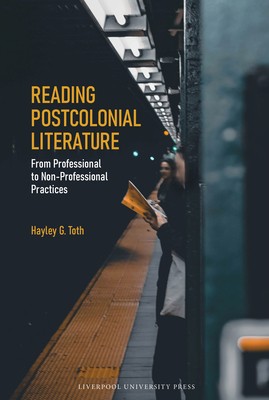
- We will send in 10–14 business days.
- Author: Hayley G Toth
- Publisher: Liverpool University Press
- ISBN-10: 1836243138
- ISBN-13: 9781836243137
- Format: 15.6 x 23.4 x 1.2 cm, minkšti viršeliai
- Language: English
- SAVE -10% with code: EXTRA
Reviews
Description
An Open Access edition will be available on publication thanks to the kind sponsorship of the libraries participating in the Jisc Open Access Community Framework OpenUP initiative.
Debates about reading in postcolonial studies rarely discuss non-professional readers, except to secure the authority of professional reading practices. In Reading Postcolonial Literature, Hayley G. Toth places non-professional reading practices in dialogue with received academic wisdom to debunk common-sense assumptions about non-professional readers as 'western' or 'neo-colonial' consumers. Drawing on reading practices recorded in academic books, journal articles and on online book-reviewing platforms like Amazon and Goodreads, Toth draws attention to important continuities between professional and non-professional practices of reading postcolonial literature. At the same time, she highlights that non-professionals often have little desire to emulate the practices of professional postcolonial critics. Precisely by not adopting the established protocols and methods of postcolonial studies, non-professional readers call attention to the limits of dominant approaches to reading in the discipline.
Across four chapters, Toth examines the relationship between reading and identity during the Rushdie affair, the difference between the reading and address, the challenges posed by difficult texts and the legitimacy of non-understanding, and the reception of popular texts primarily read by non-professional audiences. Reading Postcolonial Literature demonstrates that reception matters in any claims we make about the value of reading postcolonial literature, and offers new ways forward for the practice, study and teaching of reading in the discipline.
EXTRA 10 % discount with code: EXTRA
The promotion ends in 23d.14:00:21
The discount code is valid when purchasing from 10 €. Discounts do not stack.
- Author: Hayley G Toth
- Publisher: Liverpool University Press
- ISBN-10: 1836243138
- ISBN-13: 9781836243137
- Format: 15.6 x 23.4 x 1.2 cm, minkšti viršeliai
- Language: English English
An Open Access edition will be available on publication thanks to the kind sponsorship of the libraries participating in the Jisc Open Access Community Framework OpenUP initiative.
Debates about reading in postcolonial studies rarely discuss non-professional readers, except to secure the authority of professional reading practices. In Reading Postcolonial Literature, Hayley G. Toth places non-professional reading practices in dialogue with received academic wisdom to debunk common-sense assumptions about non-professional readers as 'western' or 'neo-colonial' consumers. Drawing on reading practices recorded in academic books, journal articles and on online book-reviewing platforms like Amazon and Goodreads, Toth draws attention to important continuities between professional and non-professional practices of reading postcolonial literature. At the same time, she highlights that non-professionals often have little desire to emulate the practices of professional postcolonial critics. Precisely by not adopting the established protocols and methods of postcolonial studies, non-professional readers call attention to the limits of dominant approaches to reading in the discipline.
Across four chapters, Toth examines the relationship between reading and identity during the Rushdie affair, the difference between the reading and address, the challenges posed by difficult texts and the legitimacy of non-understanding, and the reception of popular texts primarily read by non-professional audiences. Reading Postcolonial Literature demonstrates that reception matters in any claims we make about the value of reading postcolonial literature, and offers new ways forward for the practice, study and teaching of reading in the discipline.


Reviews